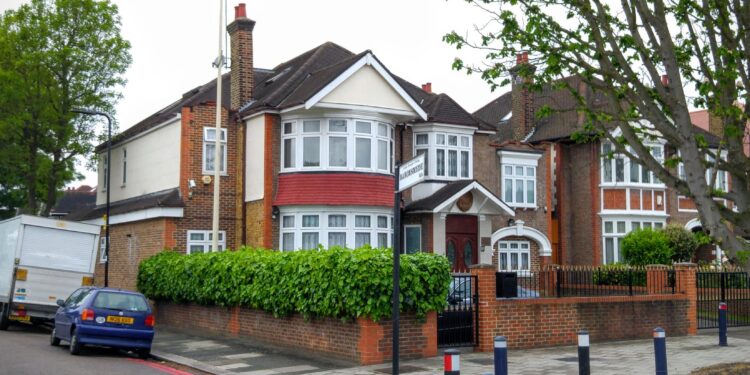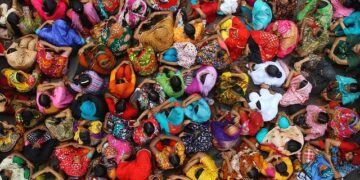In a celebration underscoring the enduring ties between North Korea and Iran, the North Korean Embassy in Tehran commemorated the 80th anniversary of the founding of the Workers’ Party of Korea. The event, which drew high-ranking officials and diplomats, marked a significant moment in the diplomatic relations between the two nations, highlighting their shared interests and historical connections. As North Korea faces increasing isolation on the global stage, this milestone not only reflects the embassy’s commitment to fostering bilateral cooperation but also serves as a reminder of the complex geopolitical dynamics in the region. The festivities included cultural performances, speeches, and discussions on the future of North Korea-Iran relations, showcasing the importance of this anniversary amidst the broader context of international politics.
North Korean Embassy Celebrates 80 Years of Workers’ Party Legacy in Tehran
The North Korean Embassy in Tehran hosted a vibrant ceremony commemorating the 80th anniversary of the Workers’ Party of Korea, marking a significant milestone in the nation’s political history. The event featured speeches by key diplomats and officials, highlighting the party’s achievements and its pivotal role in shaping North Korea’s governance. Attendees were treated to traditional performances that reflected the cultural heritage of North Korea, emphasizing themes of unity and resilience. Furthermore, among the displays were artistic expressions that symbolized the party’s aspirations for the future and its unwavering commitment to socialism.
Guests from various diplomatic missions and cultural organizations gathered to express solidarity with the North Korean cause. The event showcased a range of exhibits detailing the party’s journey over the past eight decades, including:
- Founding Principles: The ideological foundation laid by the party’s founders.
- Achievements: Notable success stories in sectors such as education, healthcare, and industry.
- International Relations: Efforts to enhance partnerships and political cooperation with various nations.
In a speech delivered during the reception, the North Korean Ambassador praised the party’s organizational strength and called for continued support from the global community for North Korea’s sovereignty and development. The event concluded with a commitment to uphold the values instilled by the party, projecting a vision of continuity and determination for the North Korean people.
Significance of Diplomatic Relations Between North Korea and Iran: A Historical Perspective
The diplomatic ties between North Korea and Iran have historically been shaped by a shared ideology, geopolitical interests, and mutual support against perceived threats from Western powers. Both nations, often facing international sanctions, have cultivated a strategic partnership that has, over the years, yielded cooperation in various sectors such as military technology and economic development. Key factors contributing to their relationship include:
- Mutual Isolation: Both countries have navigated through international isolation, leading them to forge bonds that extend beyond mere diplomatic niceties.
- Shared Enemies: The common adversarial stance toward the United States and its allies has fostered a sense of solidarity.
- Military Cooperation: Historical exchanges in military technology and training have underscored their close ties.
As the 80th anniversary of the Workers’ Party of Korea is commemorated, it serves as a reminder of this enduring partnership and reflects their collective resilience. The significance of their diplomatic relations is exemplified in various collaborative efforts over the decades, which can be further illustrated in the following table:
| Year | Event | Significance |
|---|---|---|
| 1969 | Establishment of Diplomatic Relations | Formal recognition and cooperation agreements initiated. |
| 1980s | Collaboration on Missile Technology | Joint projects aimed at enhancing military capabilities. |
| 2010 | High-Level Meetings | Strengthened political ties amidst geopolitical tensions. |
Future Collaborations: Exploring Opportunities for Economic and Cultural Exchange
The celebration of the 80th anniversary of the founding of North Korea’s Workers’ Party at the embassy in Tehran signifies a pivotal moment for both nations as it opens avenues for enhanced bilateral ties. As the two countries commemorate this historic milestone, discussions surrounding economic and cultural exchanges are becoming increasingly prominent. Potential opportunities may include:
- Trade Initiatives: Exploring sustainable trade agreements that boost local economies.
- Cultural Programs: Initiating art exchanges, music, and dance festivals to strengthen cultural ties.
- Educational Collaborations: Establishing scholarship programs for students from both countries.
Furthermore, aligning their strategic interests could enable both Iran and North Korea to engage in collaborative projects that foster mutual growth. An examination of key sectors reveals areas ripe for partnerships, such as:
| Sector | Potential Collaborations |
|---|---|
| Agriculture | Cooperative farming techniques and food production projects. |
| Technology | Joint ventures in renewable energy and telecommunications. |
| Tourism | Tour packages promoting cultural heritage sites of both countries. |
The Way Forward
In conclusion, the 80th anniversary of the founding of North Korea’s Workers’ Party, as commemorated by the North Korean Embassy in Tehran, highlights the enduring ties between Pyongyang and Tehran. This milestone not only reflects the historical significance of the party within North Korean socio-political life but also showcases the diplomatic relations that both nations have cultivated over the decades. As the world continues to grapple with challenges on the international stage, events such as this serve as a reminder of the complex network of alliances and ideologies that influence global politics. The ceremony, attended by various dignitaries and officials, underscores the importance both countries place on their bilateral relations, signaling a continued commitment to collaboration amidst shifting geopolitical landscapes.













